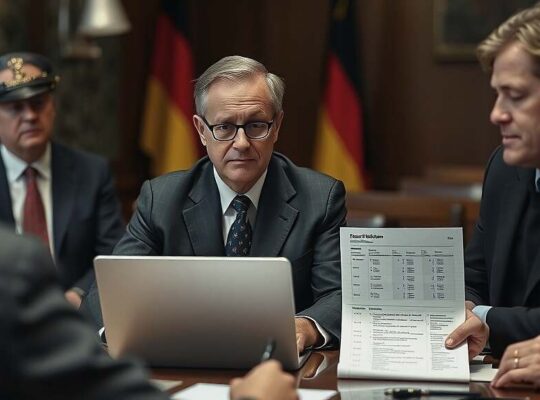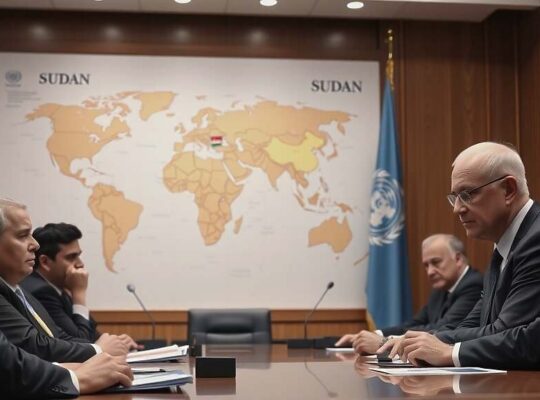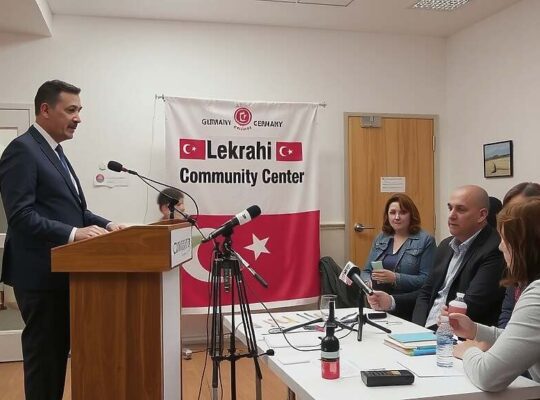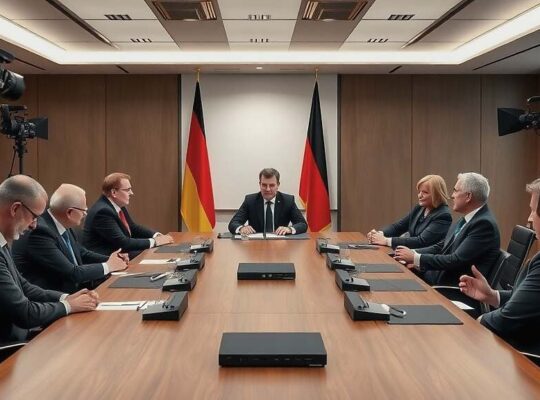The German government is implementing stringent measures to prevent Palestinian Authority funds, derived from both German and European aid, from inadvertently supporting individuals implicated in acts of terror or affiliated with Hamas. This policy shift, detailed in a recent response from the Federal Ministry for Economic Cooperation and Development (BMZ), follows reports in Israeli media alleging substantial payments disbursed to recently released Palestinian prisoners, some of whom were involved in the October 7th attacks on Israel.
According to BMZ, under the leadership of Development Minister Reem Alabali Radovan, Germany intends to preclude the Palestinian Authority from utilizing development assistance or EU funds to provide so-called “martyr payments” to Hamas operatives or their families. While the ministry maintains a commitment to continue project-based support for the Authority, headed by Mahmoud Abbas and participate in Gaza reconstruction efforts, the new restrictions mark a considerable tightening of financial oversight.
Abbas, facing substantial pressure from the United States, formally halted these contentious payments earlier this year. However, the recent revelations concerning payments to individuals released from Israeli custody have prompted a renewed scrutiny of aid distribution, with concerns raised regarding the potential for funds to indirectly finance terrorist activities.
BMZ officials state that, as of February 2025, the Palestinian Authority announced the formal cessation of “martyr payments” purportedly initiating a restructuring of the social welfare system. A crucial interim measure includes freezing funds designated for the Authority’s social assistance programs through the EU’s PEGASE mechanism, a move anticipated to remain in effect until reforms are fully implemented and assessed – an evaluation expected to be released by the EU in November.
Reports from the Israeli news portal Ynet claim that around 160 recently released Palestinian prisoners have accumulated significant wealth, reportedly equivalent to millions of dollars, received through these payments, totaling approximately $70 million overall. This figure, if accurate, highlights the scale of the financial flows and the potential for misuse of international aid.
The move is expected to draw criticism from Palestinian advocacy groups who argue that such stringent conditions compromise the Authority’s ability to provide essential social services to its population. Questions remain regarding the long-term impact on relations between Germany and the Palestinian Authority and whether this tougher stance will encourage further reform or exacerbate existing tensions in the region. The impending EU report will be pivotal in determining the future trajectory of German and European aid to the Palestinian Authority.












